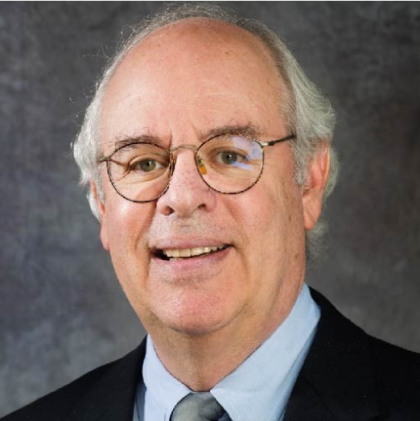Remsen Lecture: Steven Sibener

Description
Steven Sibener, a distinguished service professor in the Department of Chemistry at The University of Chicago, will give the 2024 Ira Remsen Memorial Lecture titled "A Multiscale View of Dynamical Processes at Surfaces Using Molecular Beam Scattering, In Situ Scanning Probe Imaging, and Molecular Dynamics Simulations" for the Department of Chemistry.
There will be pre-seminar refreshments beginning at 6 p.m. and a reception immediately following, both in Remsen 140.
Abstract:
This presentation will highlight recent contributions from our group in the areas of surface chemistry and gas-surface interactions. Information derived from molecular beam scattering experiments, in situ scanning probe microscopy, and numerical simulations are yielding a precise multiscale perspective of many important heterogeneous processes such as such as catalysis, reaction dynamics, collisional energy transfer, materials growth and erosion, ice formation, self-organization of polymers, and metallurgy of alloy superconductors. Our newest endeavor involves the concurrent use of neutral particle scattering coupled with in situ atomic-level STM visualization. Here single molecule events involving measurement of the distance and angle between adsorbed nitrogen atoms originating from the same dissociated N2 molecule on ruthenium are precisely determined over a range of impinging N2 kinetic energies and angles, revealing new information about spatio-temporal correlations and energy dissipation in chemisorption. Such measurements provide a window into on-surface chemical processes including non-adiabatic energy dissipation—reaction steps that complement the information available from more traditional scattering experiments. Today's talk will introduce heterogeneous studies from our group encompassing reactive events on semiconductors, metals and moiré graphene, materials growth, annealing, and erosion, and ice formation including molecular capture under non-equilibrium conditions—a topic of importance for astrochemistry and the involvement of terrestrial permafrost chemistry in climate change. Finally, we attribute a new phenomenon involving the observation of notable isotopic enrichment in condensed films to differential isotopic condensation probabilities under specific non-equilibrium collision conditions, findings which may provide a new pathway for creating isotopically pure materials suitable for quantum computation platforms.
Who can attend?
- General public
- Faculty
- Staff
- Students







